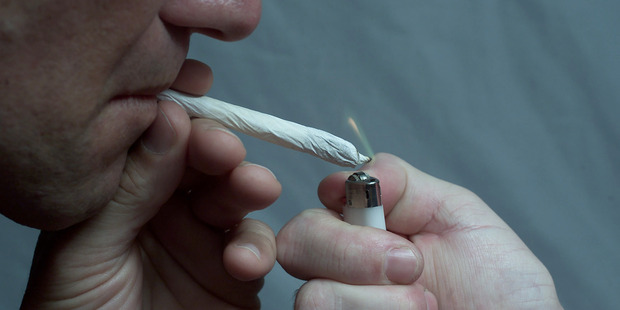
Ministry of Justice figures released under the Official Information Act to NZME revealed the number of people charged with cannabis offences fell from 8889 to 3554 between 2009 and 2015.
Drug Foundation executive director Ross Bell said the drop in charges was because police had "almost de facto decriminalised cannabis" possession and were more likely to issue warnings for low-level drug offending, which do not appear on an individual's criminal record.
The release of the figures follow a recent Drug Foundation poll which found 64 per cent of Kiwis surveyed said a small amount of cannabis for personal use should be decriminalised or legalised, and 79 per cent were in favour of allowing it for medical use, such as pain relief.
Peaceful protests are planned around the country on September 17. The "Stop The Arrests - National Day of Action" rallies will gather outside police stations during the afternoon, seeking a halt to cannabis prosecutions.
Bell said the increased use of police warnings was positive but the Government was "irresponsible" for not making legislative changes to reflect how police were enforcing the law in practice.
"You can't just let police make up the law as they go along," Bell said.
"There is a point where politicians do need to be responsible and not accept that it's okay for the police to turn a blind eye."
A spokeswoman from the office of Police Minister Judith Collins did not respond directly to Bell's comments, but said police applied discretion when dealing with low-level offending.
"This can include a warning, a pre-charge warning or prosecution. The actions police take will be dictated by the particular circumstances of each matter.
"Police powers of enforcement including its use of discretion are applied equally based on the facts as they are known."
"Politicians should now be able to proceed with cautious reform without fear of a voter backlash."Possession of cannabis can result in up to three months' imprisonment and/or a $500 fine.
Bay of Plenty GP and addiction medicine expert Tony Farrell said a reform discussion should be informed by experts and evidence rather than personal beliefs.
He said a Law Commission review from 2011, which outlined drug reform recommendations, was ignored by the Government.
"It shows how old fashioned our politicians are. They're just not having a modern conversation about what's really happening with substances in our society," Dr Farrell said.
"I'm not necessarily an advocate for decriminalisation myself. I'm an advocate for someone looking at it and telling us the best way to do it."
GP and addiction specialist Tim Bevin said the Government must be cautious how it tackled the details of any potential law change to minimise harm.
"We've got to be very careful because it's another mind-bending thing that becomes available to people - we [already] have the major drug alcohol widely available and causing a lot of harm," Dr Bevin said.
"If we're going to say these things are legalised, we need to look at the availability side of things and the age of use."
Bell said the Drug Foundation poll, which was undertaken by Curia Market Research, showed support for reform across all major political parties.
"Politicians should now be able to proceed with cautious reform without fear of a voter backlash, but any new system needs to protect young people and those communities that already experience the harmful effects of drug use. Any new approach should be carefully designed to improve not worsen drug harm," he said.
Earlier this month, a frontline police officer shared his views on decriminalising marijuana in a column in the September edition of the Police Association's Magazine, Police News.
"People who are stoned are generally quite jovial and the last thing they want to do is fight me," said the officer.
"Initially, I had a zero-tolerance approach. Anyone I found with a tinny would find themselves before the courts. Now, however, I am more likely to tell them to get rid of it in a nearby drain and be on their way."
Number of cannabis possession convictions, District and Youth courts
Auckland, Manukau and North Shore:
2009: 858
2010: 686
2011: 513
2012: 530
2013: 426
2014: 389
2015: 332
Hamilton:
2009: 267
2010: 197
2011: 217
2012: 160
2013: 115
2014: 120
2015: 92
Wellington:
2009: 191
2010: 169
2011: 127
2012: 108
2013: 61
2014: 53
2015: 75
Christchurch
2009: 361
2010: 432
2011: 329
2012: 302
2013: 193
2014: 148
2015: 141
- Source: Ministry of Justice

No comments:
Post a Comment